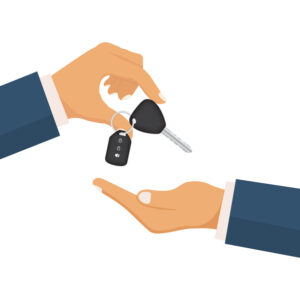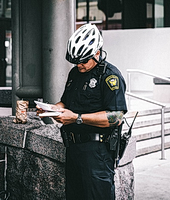
When borrowing someone else’s car, it’s essential to exercise responsibility and respect for both the owner and the vehicle. If you are going to lend your car to another driver, be aware that You will be responsible for any redlight/or speed camera tickets they get–those tickets are tied to the plate and the registered owner is solely responsible–same for EZ PASS tolls and violations.
Here are some best practices to keep in mind:
The Car Borrower’s Checklist
-
Check Insurance Coverage
Ensure that the owner has proper insurance that extends to other drivers. If not, consider additional coverage options, such as adding yourself to their policy temporarily. -
Respect Guidelines and Rules
Follow any guidelines or rules set by the owner, such as mileage limits, fuel requirements, and any specific instructions regarding the operation of the vehicle. -
Communicate Delays or Issues
If you encounter unexpected delays or issues during your use of the car, communicate with the owner promptly. This allows them to make alternative arrangements if necessary. -
Drive Safely and Responsibly
Practice safe and responsible driving behavior. Follow traffic laws, and speed limits, and avoid any activities that might distract you while driving. -
Avoid Personalizing the Vehicle
Refrain from making significant changes or personalizing the owner’s car without explicit permission. This includes adding accessories or making modifications. -
Respect Personal Belongings
Avoid using the owner’s car to transport items that may damage or soil the interior. Respect the owner’s personal belongings inside the vehicle. -
Be Mindful of Parking
Don’t just park the vehicle anywhere without paying attention to the parking rules. Check the signs! The last thing you would want is to give the owner a parking ticket you found on the windshield. This especially goes for running red lights as mentioned above. Even if you think you made it through the yellow light, the camera might have a different opinion. Expect a phone call from the owner three weeks later if that happens. -
Be Prepared for Emergencies
Familiarize yourself with the location of essential items, such as the spare tire, jack, and emergency kit. Are you a member of a roadside assistance group (e.g. AAA)? If not, you may want to ask the car owner if he/she has one. -
Return the Car in the Same Condition
You should return the car in the same condition as when you borrowed it. Even a small knick may cause the owner to get annoyed. Aside from the obvious, remember to keep it clean – throw out any food or garbage, and make sure any settings (e.g., seat position, mirrors) that were adjusted by you are put back to the way they were. - Express Gratitude
Thank the owner for allowing you to borrow their car. A gesture of appreciation, such as filling up the tank or a small token of thanks, is a thoughtful way to show your gratitude. You might even want to go the extra step and get the car washed, especially if it got dirty during your drive. - Don’t Drink or Use Illegal Drugs
Yes, this is obvious, but we added it in any way. Some people think that just because they are using someone else’s car, they can be more liberal with the laws. Not a chance!
The law is the law and if you break it, prepare for the consequences to follow!
Remember, borrowing a car is a significant responsibility, and being considerate and responsible ensures a positive experience for both you and the owner. Open communication and clear expectations help build trust in these situations.
So Much for the Niceties. Now to the Calamities

If you find yourself in the situation of getting a traffic ticket while borrowing someone else’s car, it’s important to handle the matter responsibly and communicate effectively with the car owner. Here are some best practices:
-
Inform the Car Owner
Don’t pretend the problem will go away by itself and you will never hear from the owner if something goes wrong. Immediately inform the car owner about the traffic ticket. It’s essential to be honest and transparent about any incidents involving their vehicle. With that said, here are the guidelines you should follow: -
Provide Details
Share all the details of the traffic violation, including the nature of the offense, the location, and any other relevant information. This will help the car owner understand the situation better. -
Offer to Pay the Fine
No doubt the owner will not be a happy camper, but you can alleviate their fears by being willing to take responsibility for the consequences of the ticket. Offer to pay the fine associated with the violation. If you’re unsure about the amount, inquire with the appropriate authorities or check the ticket for details. -
Check Insurance Implications
Understand the potential impact of the ticket on the car owner’s insurance. Some traffic violations may lead to an increase in insurance premiums. Discuss this with the owner and be prepared to take the necessary steps to address any changes in insurance. -
Seek Legal Advice if Necessary
If the ticket involves a serious offense or if you believe it was issued unfairly, you may want to seek legal advice. Consult an attorney to understand your options and potential consequences and discuss it with the car owner. -
Apologize and Express Regret
Another common sense suggestion. Apologize for any inconvenience caused. Express genuine regret for the situation and assure them that you will take steps to prevent similar incidents in the future. -
Assume Responsibility for Consequences
Be prepared to handle any consequences of the traffic ticket, including potential increases in insurance premiums. If necessary, work out an arrangement with the car owner to cover any additional costs.
Open communication, responsibility, and a willingness to address the consequences when driving someone else’s car are key when dealing with a traffic ticket. These practices help maintain trust between you and the car owner and demonstrate your commitment to rectifying the situation.
Patricia Scanlon is a traffic ticket attorney who services clientele in Long Island, NYC, and throughout NYS.